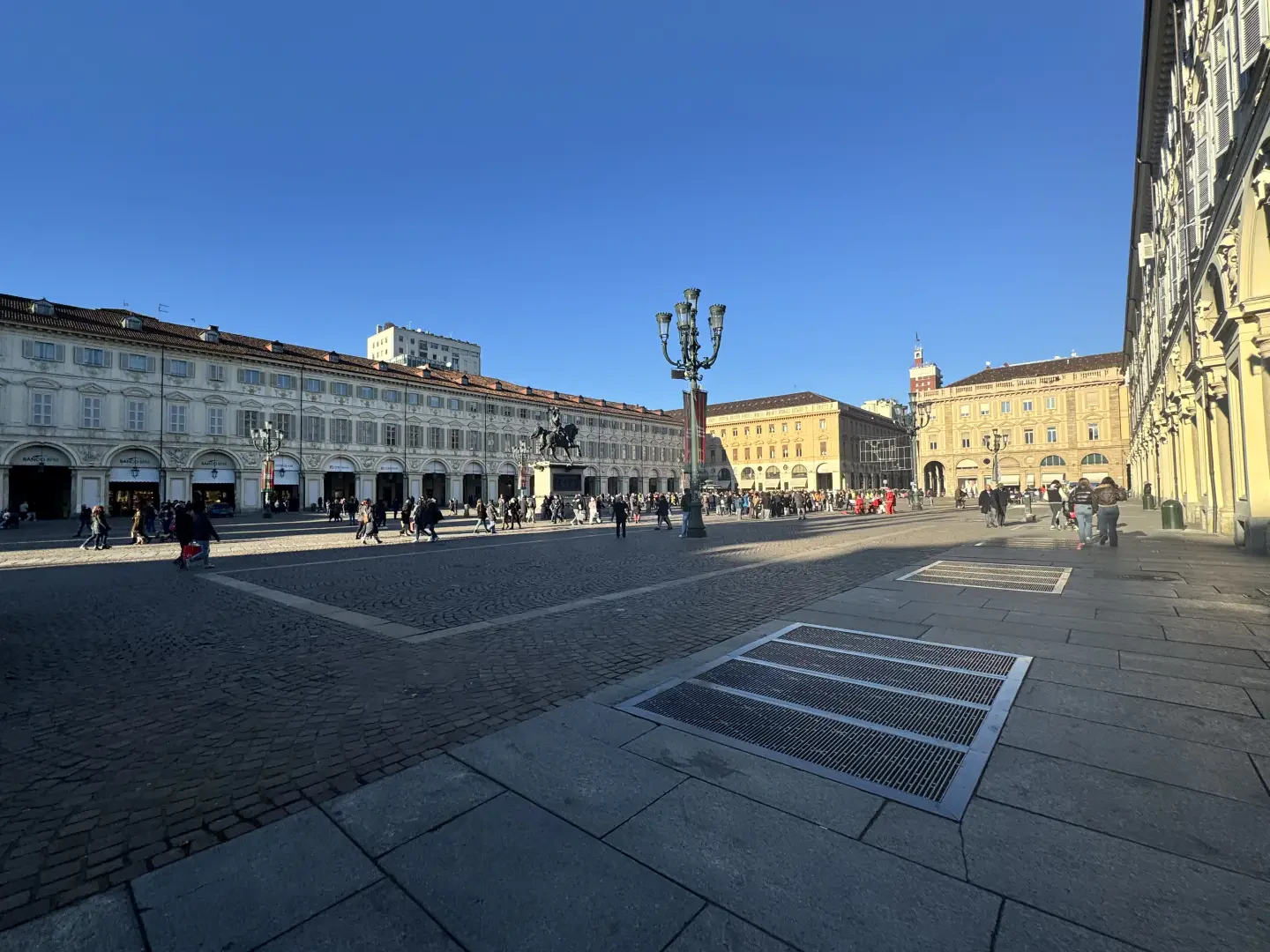Turin

Introduction
Turin, the capital of Piedmont, is one of Italy's most fascinating cities, known for its rich history, cultural heritage and privileged location at the foot of the Alps. With a unique mix of tradition and modernity, Turin is a must-visit destination for those wishing to discover an area where art, architecture and nature intertwine harmoniously.
Description
The territory of Turin stretches over a wide plain that wedges between the hills of the Po and the imposing Alpine chain on the horizon. The Po River flows through the city, enriching it with river parks and picturesque views, while the Turin hills offer a natural refuge for those seeking tranquillity and breathtaking panoramas. The city is strategically located, surrounded by areas of great natural interest such as the Valentino Park and the Collina Torinese Nature Reserve. This varied landscape, combined with the presence of a mild climate, makes Turin a suitable destination for both lovers of urban culture and those who wish to immerse themselves in nature.
The history of Turin has ancient roots, dating back to Roman times, when it was founded as a colony with the name Augusta Taurinorum. Over the centuries, the city developed as a major political and cultural centre, becoming the capital of the Duchy of Savoy, the Kingdom of Sardinia and, in 1861, the first capital of the Kingdom of Italy. Turin played a crucial role in the Italian Risorgimento, thanks to prominent figures such as Camillo Benso di Cavour and Giuseppe Garibaldi. During the 20th century, the city established itself as a major industrial centre, thanks to Fiat and the automotive sector, which helped transform it into an internationally important economic hub.
Turin's economy today is diversified, with a focus on the automotive industry, technological innovation and tourism. Turin is home to important companies in the technology and design sectors, but also to agri-food excellence, such as the famous chocolate and fine wines from the surrounding hills. Tourism has become increasingly important, thanks to the charm of the historical centre, its elegant squares and the presence of internationally renowned museums, such as the Egyptian Museum and the National Museum of Cinema, housed in the Mole Antonelliana, the undisputed symbol of the city.
Turin's culture and traditions are manifested in a rich calendar of events and manifestations. The International Book Fair and the Turin Film Festival are just two examples of the city's cultural vibrancy. There are also popular festivals, such as the Turin Carnival, and religious celebrations linked to the Holy Shroud, kept in the Cathedral of San Giovanni Battista. Turin's cuisine, with its typical dishes such as vitello tonnato, tajarin and grissini, is an essential aspect of the local identity, as are the crafts related to wood and metal working.
For those who love hiking and outdoor tourism, Turin offers numerous opportunities. The surrounding hills are criss-crossed by paths leading to panoramic viewpoints such as Monte dei Cappuccini, from where you can enjoy spectacular views of the city and the Alps. Lovers of art and architecture can explore the Savoy residences, such as the Reggia di Venaria Reale and the Castello del Valentino, declared UNESCO World Heritage Sites. Finally, Turin is shrouded in numerous legends and mysteries, such as those that describe it as one of the vertices of the triangle of white magic, making it even more fascinating for visitors.
Turin is a city that knows how to surprise, combining the charm of a millennial history with the energy of a dynamic, future-oriented present. A destination that invites discovery, leaving an indelible mark on anyone who visits it.